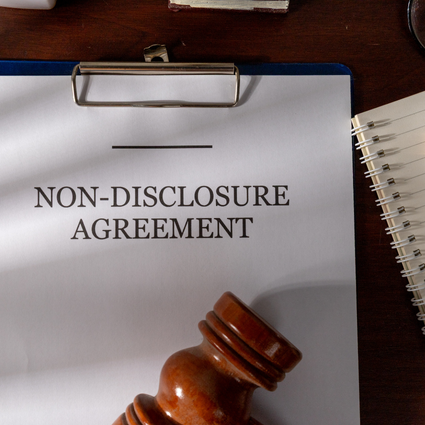Table of contents
What is a section 52 statement and when are you required to provide one?
If you have been involved in the sale of a small business in Victoria, you will likely be familiar with what is colloquially known as a ‘section 52 statement’. In short, it is a statement which must be provided in prescribed form by the vendor of a small business to a prospective purchaser, prior to signing any contract, agreement, or document, or accepting a deposit, in respect of the sale.
The statement prompts the vendor to provide certain basic operational and financial information about the business being sold. At the time of writing, a small business is defined for the purposes of section 52 of the Estate Agents Act 1980 (Vic) (‘Act’) as a business in which the goodwill, plant, equipment and fittings being sold have a total price of $450,000 or less.
What do I need to do to comply with section 52? What are the consequences if I fail to comply?
The statement’s informal namesake, section 52 of the Act, sets out the requirements of providing a compliant section 52 statement, as well as the consequences of failing to meet those requirements.
Non-compliance with the Act arises from failure by the Vendor to:
- provide the statement in the prescribed form;
- provide the prescribed particulars;
- state the prescribed particulars accurately; or
- provide the statement at all.
The consequences of failing to comply in any of these ways can be quite severe. Most relevantly, the purchaser can potentially avoid the contract and the vendor will have committed an offence under the Act.
Can I voluntarily provide a section 52 statement without taking on any additional risk?
Consider a vendor who is selling a business which doesn’t fall under the small business definition above (i.e., because the purchase price of the business exceeds $450 000), but the purchaser has still requested that they provide a section 52 statement. Can they do so without taking on any additional risk?
In short, yes, they can. The operation of section 52 is clearly limited to the sale of small businesses and is not tied to any other obligations under the Act. In other words, the obligation to provide a compliant statement, and the stated consequences of failing to do so, apply only to “small business” sales and not to larger transactions.
Therefore, voluntarily providing a section 52 statement when you are not required to do so does not carry with it risk of offending the Act or of a claim from the Purchaser in reliance on the Act because the Act doesn’t apply to the sale.
It is important to note that this does not necessarily preclude a purchaser from relying on a different cause of action in reliance on the information contained in any statement provided if a vendor knowingly or carelessly provides false or misleading information about a business. This conduct may still be subject to a breach of contract claim or the misleading and deceptive conduct provisions of the Australian Consumer Law.
Key Takeaways
- If you are selling a business located in Victoria for a purchase price of $450,000 or less, you are required to provide the purchaser with a section 52 statement. If you fail to provide the statement, or provide a deficient statement, the purchaser may be entitled to avoid completing the transaction, regardless of whether a binding contract of sale has been signed.
- If requested, vendors of larger businesses could voluntarily provide a section 52 statement without taking on additional risk under the Act.
- In all cases, vendors should be careful to provide accurate and not misleading information to purchasers to ensure compliance with Australian Consumer Law and common law generally.
Ben Dodds – Paralegal, Corporate Team
Victoria Moffat – Associate Director, Corporate Team








